Carbon neutral 2020: Meet the people who’ve given up flying
From a digital nomad who's discovered the coastal paths of Guernsey to an academic who travelled to China by train, Helen Coffey discovers that when it comes to flight-free travel the sky's the limit

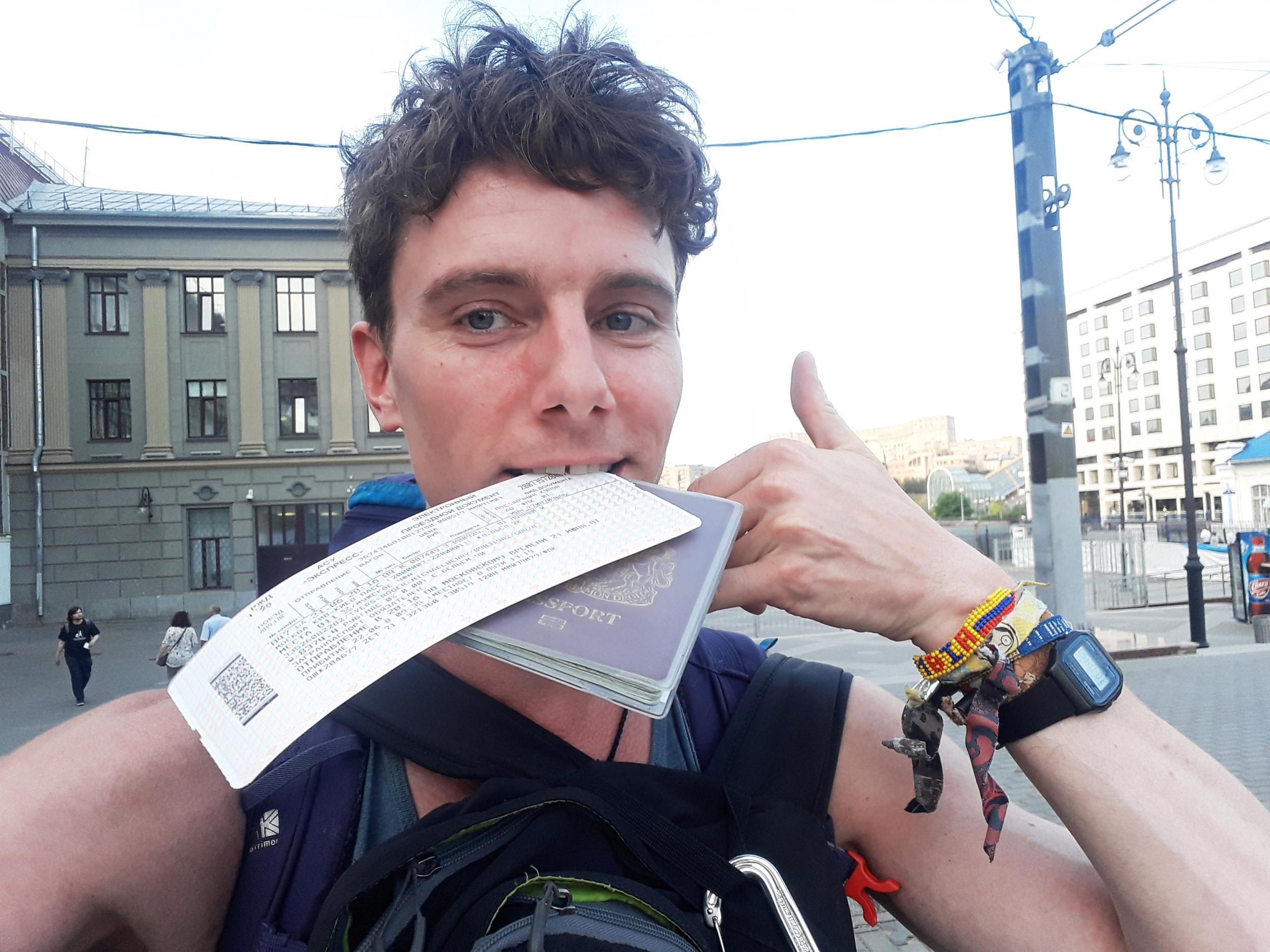
My best piece of advice? Take a yoga mat with you and do some stretches. Your back gets pretty sore when you spend two weeks on a train without moving.” This from Roger Tyers, a champion of the UK’s burgeoning flight-free movement who recently hopped on a train – well, several – to get to China to conduct a project for work.
A 37-year-old research fellow at the University of Southampton, Roger has been climate “aware” for years – his PHD was in carbon emissions from aviation – but it wasn’t until 2018, when a groundbreaking report from the UN’s Intergovernmental Panel on Climate Change (IPCC) was published, that he decided to give up flying for good. “It said that emissions needed to be drastically cut in the next 11 years to avoid the worst effects of climate change. I thought it was time to do my bit.”
Like everyone I speak to who’s gone flight-free, Roger is thoughtful, humble and engaging when talking about an act of self-sacrifice that, for many of us, seems far beyond our reach. If I expected some air of self-congratulation or self-righteousness – a judgemental comment about my lifestyle as a travel journalist, perhaps, or an embarrassing amount of hand-wringing earnestness – I was left disappointed.
“It’s not about shaming anyone – I have a huge carbon debt to pay back,” says 32-year-old Sophia Cheng. A former digital nomad who has taken more than 70 flights in the past few years, Sophia officially stopped flying at the end of June 2019 and is determined not to get on a plane until at least the end of 2020. It will be the longest she has gone without flying since the age of three.
“Deciding to reduce my carbon footprint has drastically changed my lifestyle,” she admits. “It’s forced me to take that traveller mentality of curiosity and apply it to the UK; to combat the apathy we often have for the place we grew up and actually uncover what this country has to offer.”
Spending a week visiting the Channel Islands by ferry and walking along the ancient Ridgeway trail just a few weeks after taking her last flight gave Sophia fresh insight into the positive impacts the decision to keep your feet on the ground can bring, aside from reducing her personal carbon output. “I know it’s a cliché, but it’s about the journey,” she says. “It’s about getting creative with travel. We’re all wrapped up in the idea of immediate gratification. But the slow travel movement is good for appreciating where we are at any given time.”
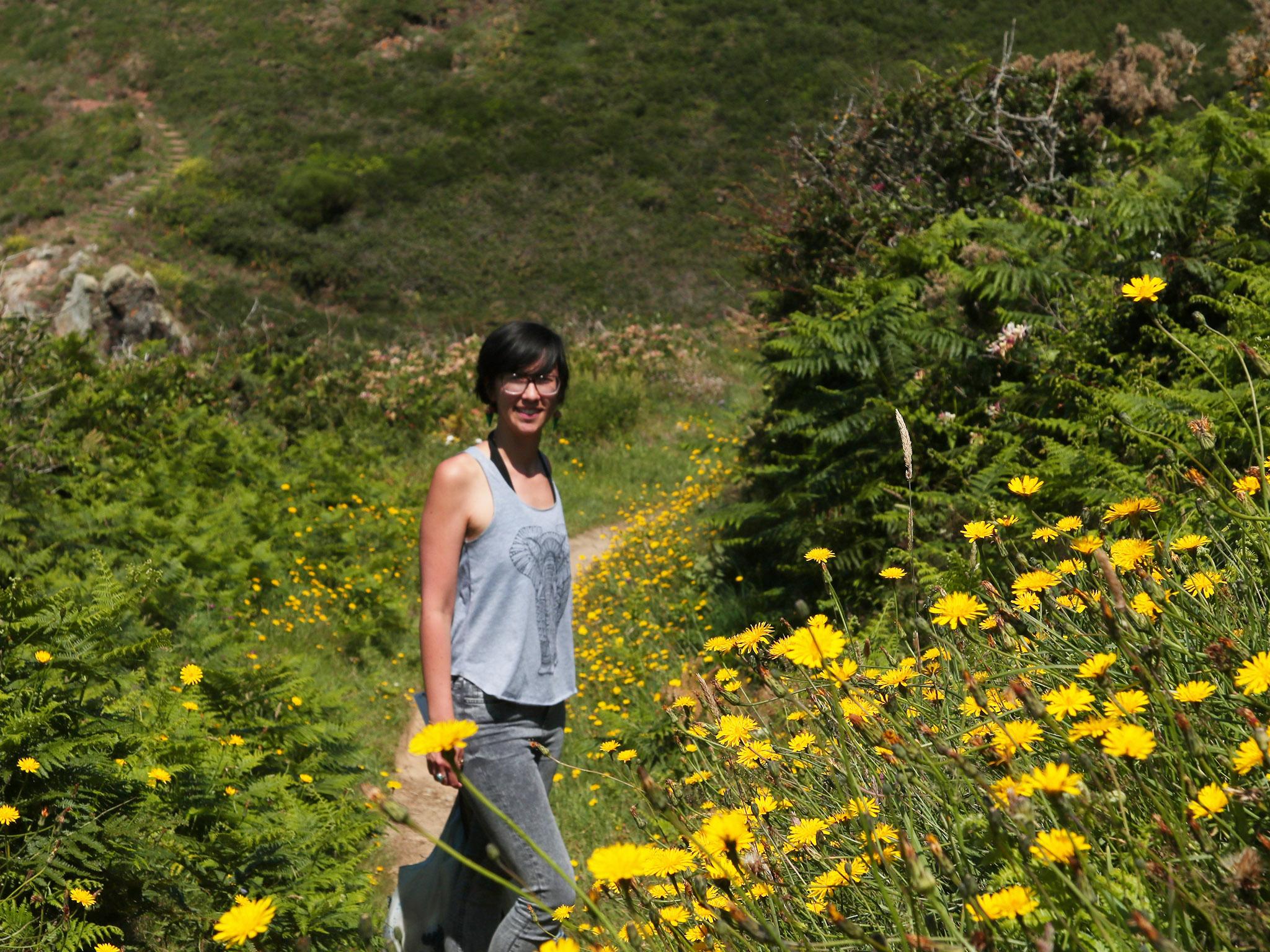
While personal choices are all well and good, it’s only by joining a collective movement that change can happen on a systemic level. Roger and Sophia, along with more than 2,000 others, have already lent their voices to Flight Free UK, an organisation aimed at encouraging individuals to pledge to stop flying for a year in 2020.
Founder Anna Hughes’s goal is to sign up 100,000 people – a number which would give the campaign some pretty hefty clout when it comes to lobbying government. “I haven’t flown for about 10 years,” she says, “but given the situation we’re now in, I felt like it wasn’t enough to reduce my own carbon footprint – I needed to open it up and do more. And it took over my life!”
Again, for someone running a project asking Brits to kick the flying habit, Anna is surprisingly non-preachy. Impassioned, yes – but the whole impetus behind making the pledge a year-long one is to empower people to give it a try, much like Veganuary did with veganism.
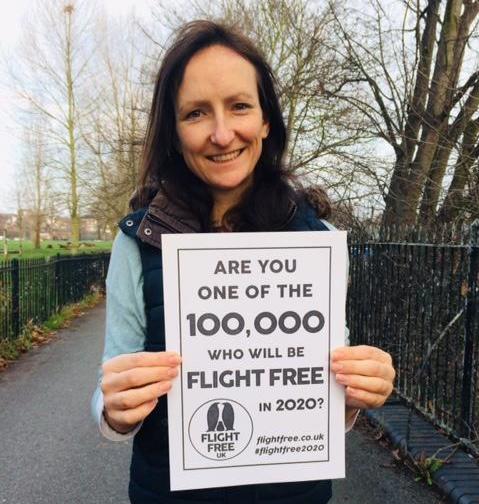
“Telling people to give up flying forever isn’t very appealing, but if you challenge them to take a year off, that short-term change can lead to long-term change,” she says. “We humans are very adaptable but equally reluctant to change our habits. If you take a challenge, you’ll probably adapt really well.”
Critics have been quick to condemn the campaign, claiming that it won’t change anything. To which Anna has the perfect response, citing the Flight Shame movement that started in Sweden: “Flight bookings are down there, rail bookings are up. Airlines are panicking about how to get customers back. And they’re not asking how to make air travel cheaper, but how to make it greener.”
126m
the number of British passengers who took a flight in 2018
What many critics may not realise is just how much purchasing power the UK has when it comes to aviation: we are a nation of flyers. Cheap package holidays and low-cost flights to city-break destinations have become part of our holiday culture to the extent that more Britons travelled abroad last year than any other nationality, including Americans. According to official data from the international trade body for aviation, IATA, 126.2 million passengers were British in 2018 – totalling 8.6 per cent, roughly one in 12, of all international travellers.
Hearing those numbers may be sobering for a layman, but they wouldn’t surprise Sue Davidson. A resident of East Sussex, Sue was transformed into an aviation activist when, overnight, Gatwick Airport introduced a flight path directly over her previously quiet neighbourhood.
“For 14 years, I never heard a plane,” she says. “Then, in 2014, I was sitting in the garden one day when an easyJet plane flew overhead, low and loud. It had never happened before – but then came another, and another. And there’s been one a minute for 18 hours a day ever since. We went from nothing to being bombarded with noise.”
Something like 15 per cent of people take 70 per cent of all flights. That's an awful lot of frequent fliers – if we can get them to reduce the number of trips it would make a big difference
The sudden intrusion into her lifestyle was the catalyst for Sue becoming more climate aware, and led to her becoming the vice-chair of Communities Against Gatwick Noise Emission (Cagne), a campaign group that launched five years ago. The group’s latest scheme is Pledge to Fly Less, which is asking people to reduce the number of flights they take. Sue has personally sworn she won’t fly again – “I’m too enraged by what Gatwick has done to Sussex” – but is realistic when it comes to other people’s travel habits.
“There’s a statistic: something like 15 per cent of people take 70 per cent of all flights. That’s an awful lot of frequent fliers – so if we can get them to reduce the number of trips they take, that would make a big difference.
“There’s already been a shift. My friends used to think I was mad talking about stopping flying – now they’re coming around to the idea.”
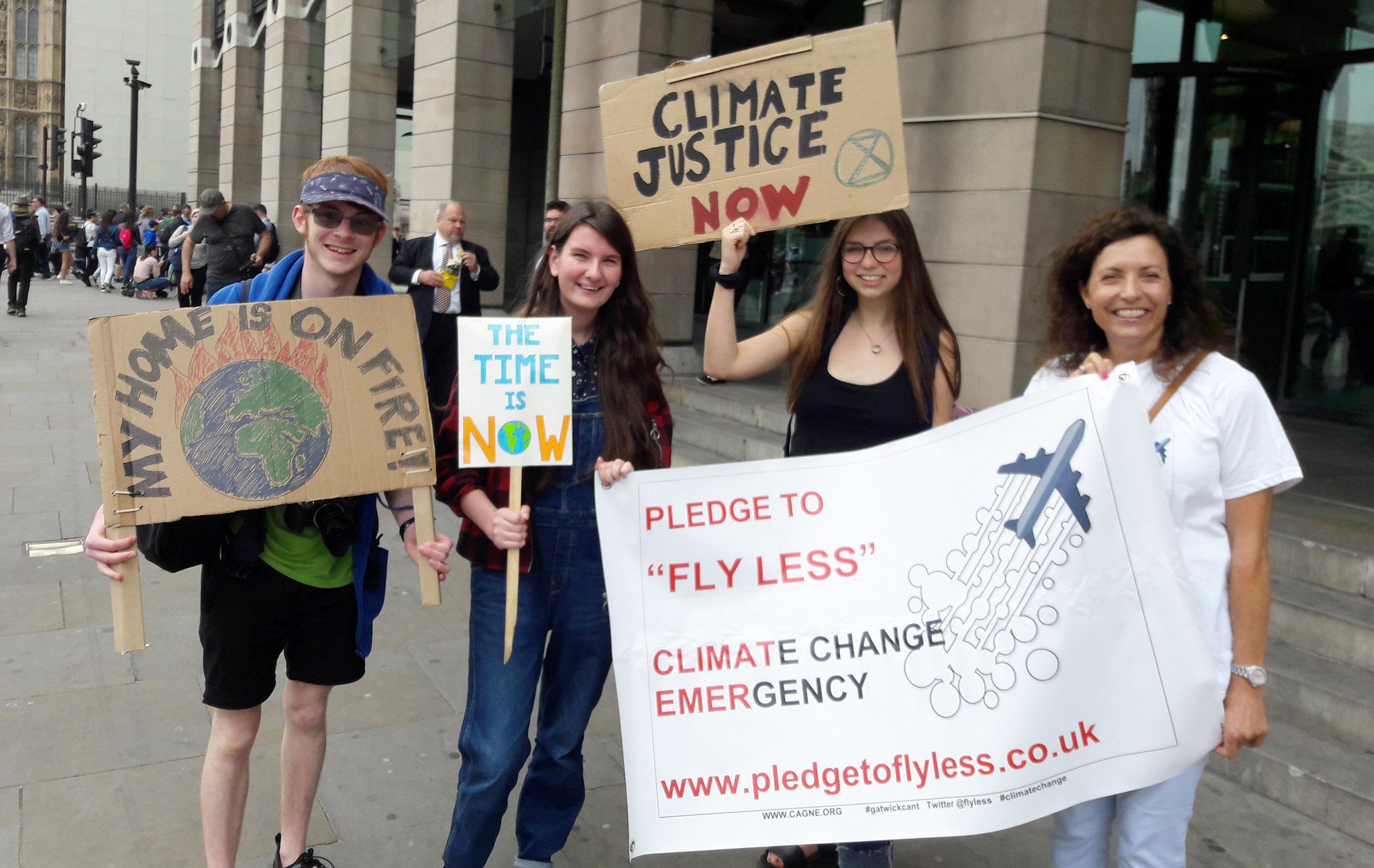
A big part of this societal turning of the tide is undoubtedly the Greta Thunberg-effect. The 16-year-old activist has publicly given up flying, following in the footsteps of her mother, opera singer Malena Ernman, and a number of other prominent Swedes. The collective flygskam (flight shame) and subsequent tagskryt (train brag) movements have rapidly inspired a change in thinking that has crossed the North Sea.
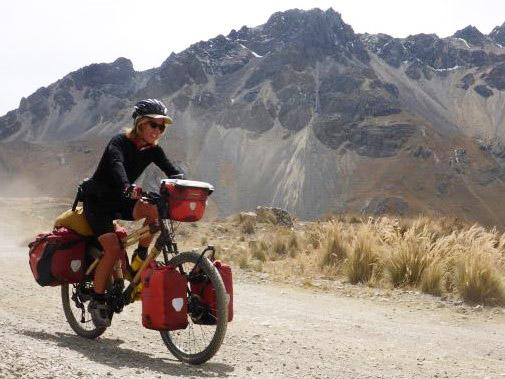
It forced Kate Rawles, a 56-year-old author who writes adventure books that deal with issues surrounding climate change, to contemplate her own hypocrisy.
“In 2006 I did a big bike ride from Texas to Alaska to raise awareness about climate change. And I flew to do that journey! I told myself my flight was special – I was there for several months, I was cycling, I was talking about environmental concerns – but that’s how we all rationalise it. I was hit by the dawning realisation of my own double standards.”
Rather than going cold turkey, Kate decided to introduce a flight “ration” instead, where she can take a flight once every three years.
“I think it’s helpful to frame it that way, because most people can imagine cutting back even if they can’t get their heads around actually quitting,” she says.
Using the decision as a springboard for adventure, Kate embarked on the ultimate journey – South America via cargo ship. The 13-day trip there and month-long return stint were the epitome of slow travel, giving her the chance to write, to work, to think. She advises those considering quitting or reducing their flying to focus on the positives: “Ask how you can do things that are even better. Explore Europe, get on your bike, discover the UK.”
She adds: “I feel better for it. Once you know about climate change and you know you’re contributing, it’s a really uncomfortable place to sit. It feels good to know you’re doing as much as you can on a personal level, as well as campaigning for systemic change.”
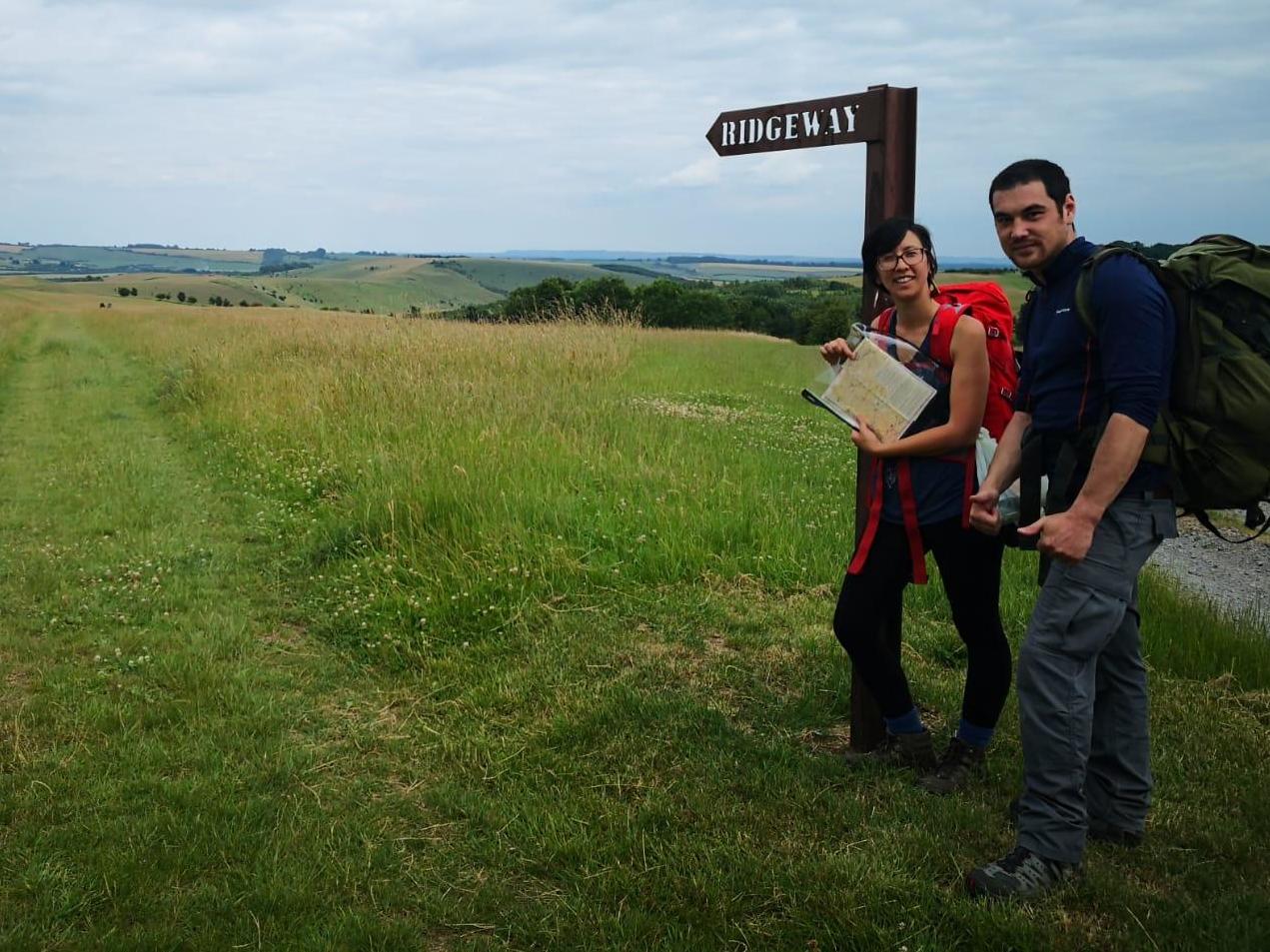
It comes back to the collective – the power that comes from the amplification of one message by thousands of voices. Kate points out that there’s a lot of focus on individual lifestyle choices, when what’s needed is change at a governmental level. “It’s crazy that it’s cheaper to fly to Scotland from England than to take the train,” she says. “We need to focus on lobbying for the cheapest option to also be the greenest.”
It’s crazy that it’s cheaper to fly to Scotland from England than to take the train. We need to focus on lobbying for the cheapest option to also be the greenest
The overall message I get from every one of the activists i speak to – whatever their age, whatever their job, whatever their motivation for making a decision that feels awe-inspiringly counter-cultural – is that reducing or quitting is not just possible, but enjoyable. Going by train affords the opportunity to read, connect with other travellers and take in the view; the limiting of choice sparks creativity and encourages the discovery of experiences right on your doorstep.
“It’s completely possible to live without flying,” Paul*, a communications manager from London, sums it up. “More than that – you can have a fulfilling, interesting life filled with new, exciting experiences, all without flying.”
Maybe he’s on to something. Maybe they all are. When it comes to flight-free travel, it certainly seems the sky’s the limit.
Join our commenting forum
Join thought-provoking conversations, follow other Independent readers and see their replies
Comments